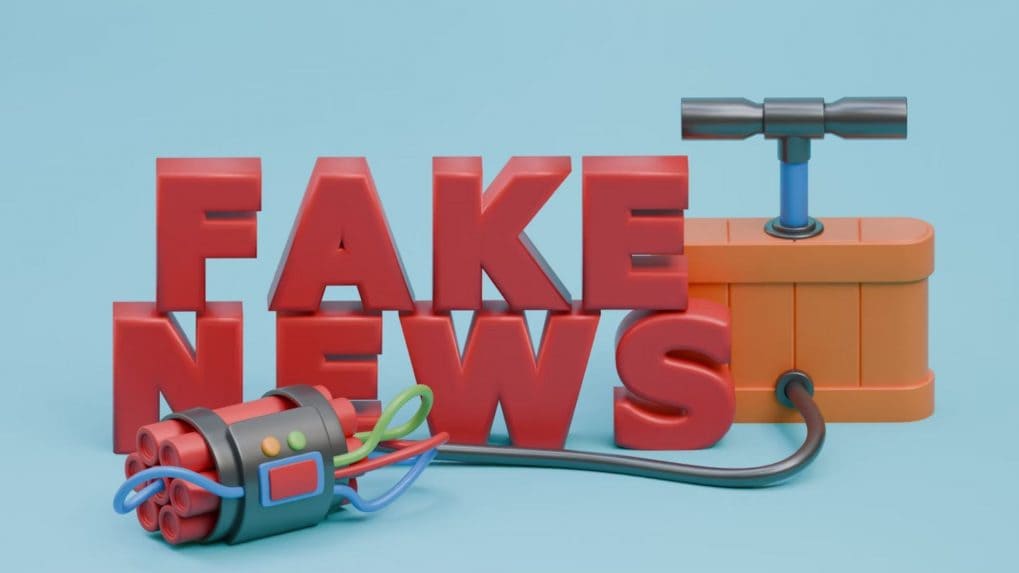Fake news menace: Parliamentary panel calls for autonomous fact checking authority
In its draft report on the “Review of Mechanism to Curb Fake News,” the committee observed that fake news, while not a new phenomenon, has proliferated rapidly with the rise of digital communication technologies.
ADVERTISEMENT
The Parliamentary Standing Committee on Communications and Information Technology has underscored the urgent need for a clear definition of fake news, a stronger regulatory framework across platforms, and nationwide media literacy initiatives to curb the growing menace of misinformation.
In its draft report, Standing Committee on Communications and Information Technology called for a mandatory fact-checking mechanism and internal ombudsman in all print, digital and electronic media organisations. The report is likely to be presented in the Parliament during the Winter Session.
In its draft report on the “Review of Mechanism to Curb Fake News,” the committee observed that fake news, while not a new phenomenon, has proliferated rapidly with the rise of digital communication technologies. The committee noted that the misuse of social media and digital platforms by “anti-social and anti-India actors” has turned misinformation into a serious threat to governance, public trust, and even national security.
One of the committee’s central observations was the lack of a statutory definition of fake news in India. While stakeholders offered varying interpretations, the committee flagged the absence of a uniform framework.
It stressed that a precise definition is vital to avoid misuse of the term as a tool to delegitimize media or silence criticism. The panel recommended that the government work towards framing a universally accepted definition, distinguishing between deliberate disinformation, satire, opinion, and inadvertent errors. It also emphasised the need to entrust the determination of fake news to independent statutory bodies rather than government agencies to safeguard freedom of expression.
The committee acknowledged the submissions of multiple stakeholders that identified the key drivers of fake news. It noted that social media algorithms that amplify sensational content, financial incentives that reward clickbait and fabricated stories, and political and ideological agendas that use misinformation as propaganda are central causes of the problem.
It also drew attention to technological advancements such as artificial intelligence-generated deepfakes that make fabricated content harder to detect and to the low levels of media literacy among India’s vast internet user base. The panel highlighted with concern that misinformation often spreads faster than factual reporting, creating echo chambers and filter bubbles that reinforce biases.
The committee highlighted existing regulatory frameworks, including the Press Council Act for print, the Cable Television Networks Act for television, and the IT Rules, 2021 for digital publishers, but pointed out that gaps persist, especially in digital media.
It observed that while the PIB’s Fact Check Unit is functional, its limited role in awareness creation without enforcement powers is insufficient. The panel also noted that court interventions, including the Bombay High Court’s order striking down amendments to the IT Rules, have further complicated the government’s efforts to give statutory backing to fact-checking.
The committee made several recommendations. It urged the government to introduce a statutory definition of fake news that is precise, distinguishes between misinformation and legitimate opinion, and avoids vagueness. It suggested that fact-checking bodies should be given statutory basis and greater powers while ensuring their independence from government control to prevent abuse.
The panel recommended that media literacy be integrated into the formal education curriculum so that students learn to critically assess digital content from an early age. It called for the deployment of artificial intelligence-based tools to monitor and verify content, particularly deepfakes and synthetic media, in coordination with the Ministry of Electronics and Information Technology.
The report stated, “The Committee expect the Ministry to explore the option of having an independent centralized monitoring body with representatives from MeitY, all the forms of Media and stakeholders for adjudicating cross-platform fake news cases and recommend penalties.”
Parliamentary Panel stressed the importance of stronger self-regulation by news organisations and digital publishers through the establishment of internal fact-checking mechanisms and ombudsmen. It also called for comprehensive coordination among the Ministry of Information and Broadcasting, the Ministry of Electronics and Information Technology, the Department of Telecommunications, the Election Commission, and law enforcement agencies to tackle misinformation, particularly during elections and crises.
The panel further emphasised that the existing three-tier grievance redressal system under the Press Council of India, the Cable Television Rules, and the IT Rules should be strengthened with clear timelines for adjudication and greater transparency in complaint handling. Finally, it recommended that India recognise fake news as a global problem requiring cross-border cooperation with other countries, since misinformation networks often operate from outside national boundaries.
The committee repeatedly stressed the importance of balancing regulatory measures with the constitutional right to free speech. It warned that poorly defined or excessive controls could stifle legitimate journalism and critical commentary. At the same time, it described fake news as a serious challenge to India’s democracy that cannot be ignored.
The committee stated that while regulatory and institutional mechanisms exist, their effectiveness will depend on closing gaps, defining fake news precisely, empowering independent bodies, and equipping citizens with media literacy. It said the menace of misinformation must be tackled without undermining press freedom and democratic discourse.
Read More: Govt tightens grip on fake news, OTT platforms under scanner


